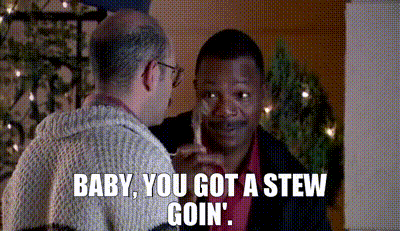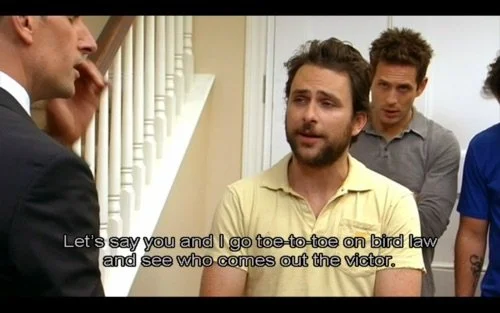Read Me Before Requesting an Informational Interview!
I receive a lot of requests for informational interviews from law students or recent grads. I’m always happy to be a resource but before we talk, please consult this FAQ:
What is a Media Lawyer?
Broadly speaking, media lawyers fall into two categories: (1) transactional and (2) litigation.
(1) Transactional lawyers buy and sell content (i.e. licensing).
(2) Litigators protect content (First Amendment, copyright), either in court or by counseling clients how to avoid/mitigate liability. To be clear, most “litigators” are not trial lawyers. It’s a catch-all term. If you want to read or watch content for a living, litigation is the route for you.
Many lawyers (myself included) do a mix of both, but it’s common for early-career lawyers to have more substantive training in one category because fhat’s how law firms are organized.
** I am predominantly a litigator so this FAQ will focus on how to have a career like mine**
What is First Amendment Law?
First Amendment law encompasses a broad range of subject matters. For example: defamation, privacy, right of publicity, reporters’ shield laws, and access to courts/public hearings.
The bottom line is that when a piece of media pisses someone off, the First Amendment is often a defense. Media lawyers review content and offer advice (aka pre-publication review or vetting). The advice could reflect changes in phrasing, pursuing additional sourcing/corroboration, or seeking comment. The lawyer also defends against any resulting legal pushback such as threat letters or lawsuits. That’s how I became pen pals with Michael Avenatti.
How To Become a Media Lawyer
Outside of taking classes in the above-mentioned disciplines and pursuing clinics or internships, there are two primary ways to develop - and showcase - your interest:
Writing.
Law Review notes are great for those seeking judicial clerkships, but most practitioners don’t read them because they are long (and boring). Write short pieces that show off your research and communication skills (i.e. the two skills that matter most as a young attorney). Writing about the law improves your understanding of it, and there is no better way to demonstrate interest and talent.
Find a controversy that interests you then call up a few media lawyers and ask them what they think. What case is it like? How is it different from other cases? Lawyers are nothing if not analogy machines. Fill in some legal research around their musings and baby, you've got a stew going (aka a solid 800-word “legal analysis”).
Here’s how I structure my articles:
1) Attention-Grabbing Opener - What’s the issue and why is it important?
2) Brief synopsis of the facts - What happened?
3) General statement of the law.
4) Application of the facts to the law - How did a court resolve the issue or how is it likely to?
5) Sum it up - What does this say about the law or our society?
Submit it to legal publications or put it up on your personal Medium page – just make sure people know where to find it.
Networking.
Get to know your local media bar, via your city or state bar, or national organizations like the MLRC and ABA. Join them, show up (in person, if you can), and volunteer. It’s a small world but quite friendly.
Many media lawyers start out at a law firm and practice for 1-3 years before moving to a more specialized, media-focused practice area or applying to a junior in-house position. There are several fellowships available to recent law school grads in the non-profit sector, as well as in-house.
What Should Future Media Lawyers Read?
I like to read The Hollywood Reporter’s legal blog (THR Esq) to stay up to date with the latest in entertainment/media law. Another go-to is Copyright Lately.
If you are going down the First Amendment path, read as much quality investigative journalism as you can. Develop an understanding of what “on-the-record” means versus “on background” and study the best reporters by reading masterpieces like Bad Blood or Say Nothing.
Learn from losses. Watch trials like Depp vs. Heard or Bollea vs. Gawker on Youtube and read about why Rolling Stone lost a defamation verdict. Losses teach us the limits of First Amendment defenses.
If none of these things interest you, then media law might not be your calling.
How To Prep For an Interview
Research the person you’re meeting with. Many young people think this is stalker behavior. It’s not. I have a robust LinkedIn page and many writings because I want people to find that information. If you ask me what my first job in media was, you’re unprepared. The same goes if you haven’t read any of my Hollywood Reporter articles or listened to any of my SLANDERTOWN podcast episodes. If you don’t enjoy them, you probably won’t find my advice very helpful.
How Dan Got His First Job in Media
While in law school, I worked as a research assistant for a then-blogger at Salon.com named Glenn Greenwald. After years of collaborating on columns and book projects relating to the First Amendment and civil liberties, I joined a startup called First Look Media that he founded after obtaining Edward Snowden’s leaked NSA documents.
What’s The Point of Talking to Dan?
Who knows?
There are not a lot of jobs in media law. They overwhelmingly go to passionate self-starters. I will happily offer my advice and guidance, but to paraphrase Bonnie Raitt, I can’t make you love media law if you don’t.
If you have made it to the end of this FAQ and are fired up, approach me with specific questions and/or great ideas and we’ll have a lot of fun together.
p.s. If you mention “bird law" when you reach out to me I’ll appreciate that you did your homework.
Bird law in this country, it's not governed by reason.

